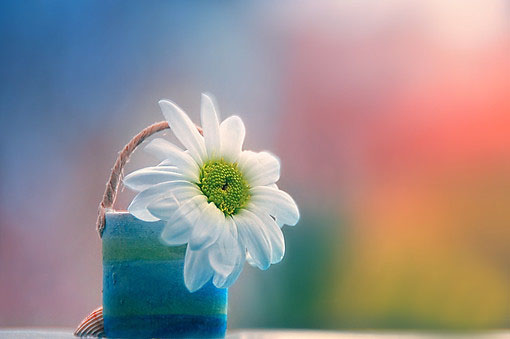1. To complete any task, Use ALL your strength
篇一 《竭盡全力去完成——面對困難,學會求助》
A young boy and his father were walking along a forest path. At some point, they came across a large tree branch on the ground in front of them. The boy asked his father, "If I try, do you think I could move that branch?" His father replied, "I am sure you can, if you use all your strength."
一個小男孩和他的父親正沿著森林里的一條小徑走著。走到一處,他們面前的地上出現了一根粗大的樹枝。男孩問父親:“您覺得我能移動那根樹枝嗎?”父親回答說:“如果你盡全力的話,我相信你能。”
The boy tried his best to lift or push the branch, but he was not strong enough and he couldn't move it. He said, with disappointment, "You were wrong, dad. I can't move it." "Try again," replied his father. Again, the boy tried hard to push the branch. He struggled but it did not move.
男孩用最大的力氣抬起或推動樹枝,可他的力量還不足以讓那根粗大的樹枝移動。他失望地說,“您錯了,爸爸,我無法移動它。”“那就再試一次”父親回答說。男孩再一次努力地推動那根樹枝。他用盡全身的力氣,可樹枝依然紋絲不動。
"Dad, I cannot do it," said the boy. Finally, his father said, "Son, I advised you to use all your strength. You didn't. You didn't ask for my help."
“爸爸,我做不到”男孩說。最后,父親說道:“兒子,我讓你用盡全力,但你并沒有。你沒有尋求我的幫助。”
Some reflections on this story...
關于這則故事的思考......
We haven't used all our strength until we have recognized, appreciated and galvanized the strength and support of those who love and surround us, and those who care about our purpose. Our real strength lies not in independence, but in interdependence.
直到我們能夠發覺、贊賞、激發那些在我們身邊愛我們,在乎我們的人所給予的力量和支持時,我們才真的做到了竭盡全力。我們真正的力量并不在于我們的獨立精神,而在于我們彼此依存,相互依靠。
No individual person has all the strengths, all the resources and all the stamina required for the complete blossoming of their vision.
沒有任何個人能夠擁有完全實現自己全部愿景的所有力量、資源和毅力。
That requires the inspired collaboration of many like-hearted beings. To ask for help and support when we need it is not a sign of weakness, it is a sign of wisdom.
這需要我們去鼓舞許多志同道合的人與我們一起合作完成。在我們需要時尋求幫助和支持,并非意味著軟弱,而恰恰是智慧的表現。
It is a call for the greater strength that lives in our togetherness. When we ask for help and we are refused, it just means we have to ask at another time, or ask in another way, or ask another person. It helps to remember SWSWSWSW. Some will, some won't, so what, someone's waiting!
團結會讓我們擁有更強大的力量。當我們尋求別人幫助但被拒絕時,這只不過意味著我們需要在另一個時間,或以另一種方式,或向另一個人再次尋求幫助。記住“四個SW”原則會讓我們受益匪淺——有些人會(SW),有些人不會(SW),那又怎樣(SW),總有人在等待我們(SW)。

2. Stop being a glass, Become a lake.
篇二 《讓自己成為一片湖——帶來痛苦的不是事物而是視角》
Once an unhappy young man came to an old master and told he had a very sad life and asked for a solution. The old Master instructed the unhappy young man to put a handful of salt in a glass of water and then to drink it.
一個整天悶悶不樂的年輕人來到一位老師父面前,告訴師父他過著非常悲慘的生活,并尋求師父提供解決辦法。師父指示這個年輕人將一把鹽放到一杯水里,然后喝下去。
"How does it taste?" The Master asked. "Terrible." spat the apprentice. The Master chuckled and then asked the young man to take another handful of salt and put it in the lake. The two walked in silence to the nearby lake and when the apprentice swirled his handful of salt into the lake.
“味道如何?”師父問道。“太難喝了。”年輕人邊回答,邊把水吐在地上。師父輕笑了一聲,讓年輕人再取一把鹽放到湖水里。二人沉默地走到附近的湖邊,年輕人將那把鹽撒入湖中。
The old man said, "Now drink from the lake." As the water dripped down the young man's chin, the Master asked, "How does it taste?" "Good!" remarked the apprentice. "Do you taste the salt?" asked the Master. "No." said the young man.
師父說:“現在,你從湖里取點兒水喝。”當水從年輕人的下巴滴下時,師父問道:“味道如何?”“好喝!”年輕人回答道。“水里有鹽的味道嗎?” 師父繼續問道。“沒有”年輕人答道。
The Master sat beside this troubled young man, took his hands, and said, "The pain of life is pure salt; no more, no less. The amount of pain in life remains the same, exactly the same. But the amount we taste the 'pain' depends on the container we put it into. So when you are in pain, the only thing you can do is to enlarge your sense of things. Stop being a glass. Become a lake."
師父坐在這個滿臉困惑的年輕人身邊,握住他的手,說:“生活中的痛苦就像這把鹽,不多也不少。它就那么多,始終保持不變。但是,我們能夠品嘗到多少“痛苦”卻取決于我們將它放入什么樣的容器。所以,當你陷入痛苦時,你唯一能做的就是擴展你胸懷。不要做一只杯子,要讓自己成為一片湖泊。”











